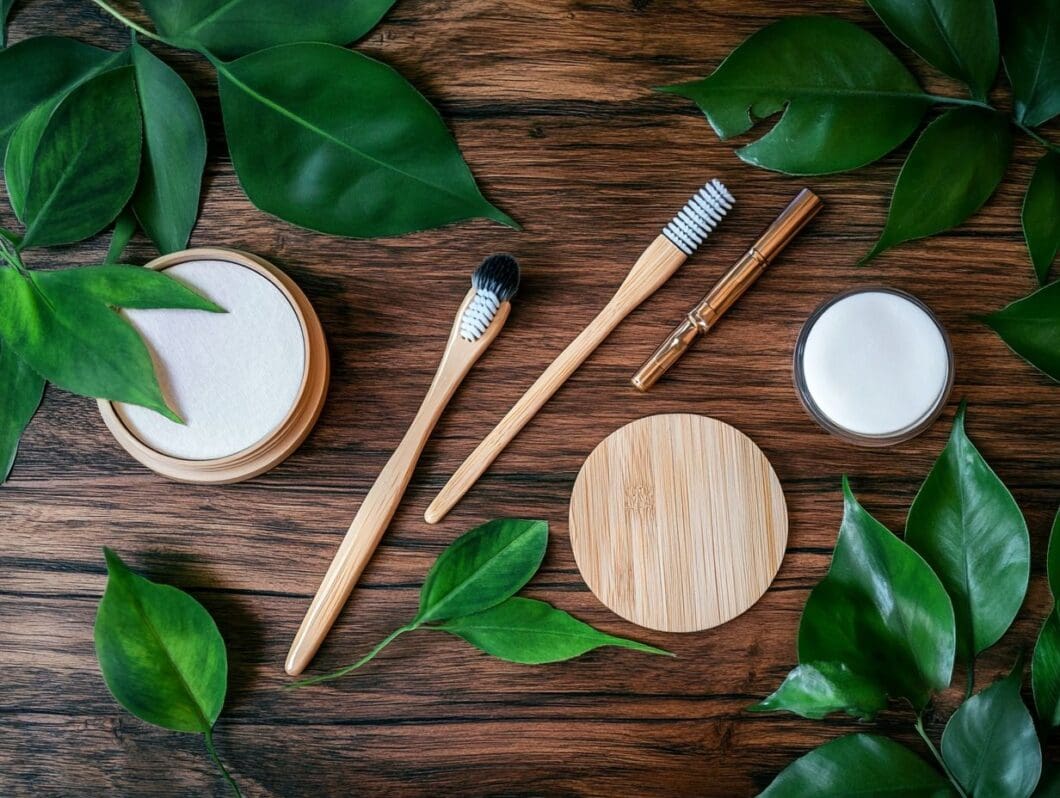Bamboo is making waves in the beauty industry, and for good reason.
As consumers increasingly seek sustainable and eco-friendly products, bamboo stands out as a versatile, renewable resource that offers numerous benefits for skincare, haircare, and makeup.
This article explores why bamboo is a sustainable choice, its natural properties, and the variety of bamboo-infused beauty products available.
We’ll share tips on how to seamlessly incorporate bamboo into your beauty routine and highlight other sustainable alternatives to consider.
Dive in to discover how this remarkable plant can enhance your beauty regimen while protecting the planet.
Key Takeaways:
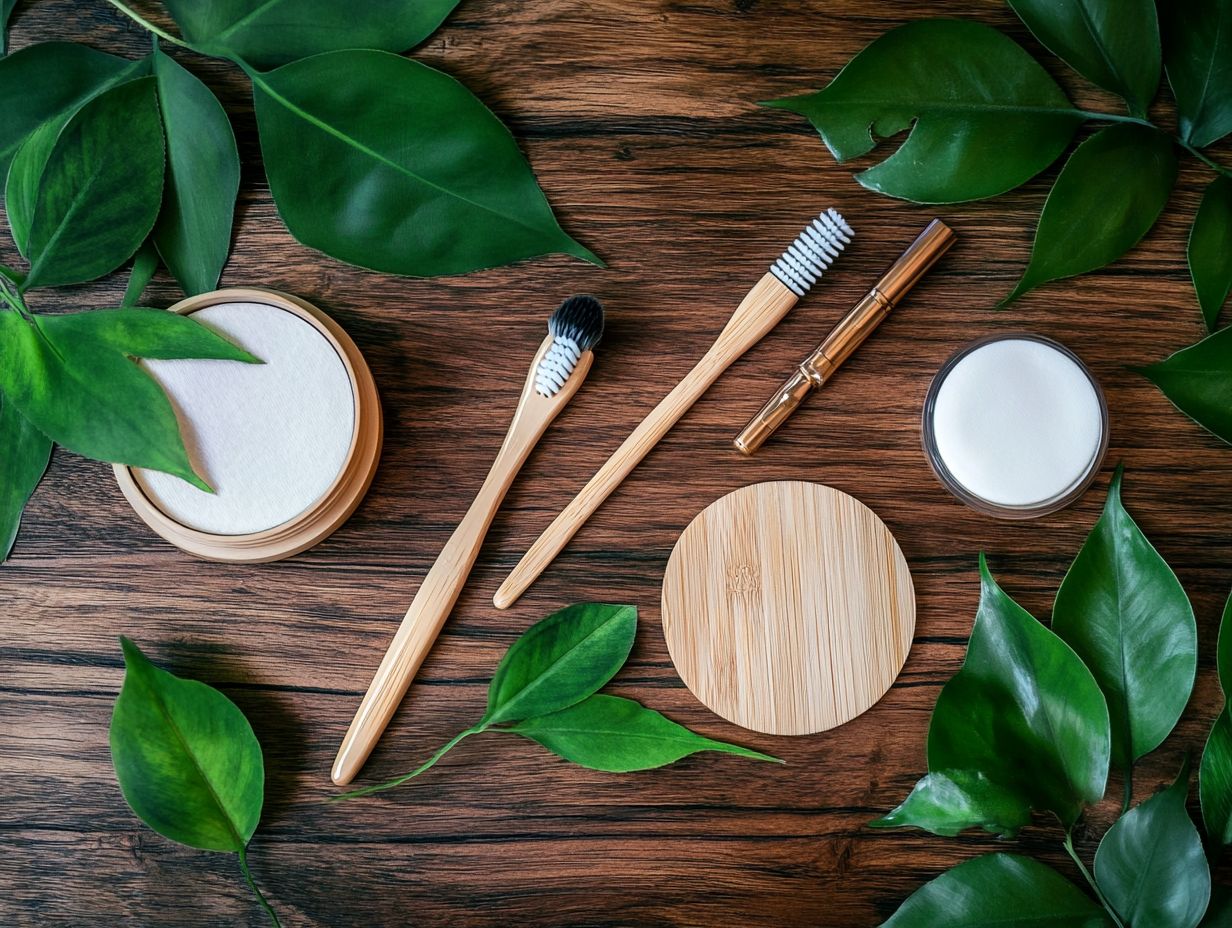
The Rise of Bamboo in the Beauty Industry
The beauty industry is experiencing a substantial transition toward sustainable practices, with bamboo emerging as a prominent eco-friendly alternative in cosmetic packaging. As a renewable resource with a rapid growth rate, bamboo is increasingly being adopted by beauty brands seeking to minimize their environmental impact.
With a growing number of eco-conscious consumers becoming more discerning in their purchasing choices, the incorporation of bamboo products into brand offerings not only aligns with sustainability initiatives but also strengthens brand identity through ethical sourcing and innovative packaging solutions.
Why Bamboo is a Sustainable Choice
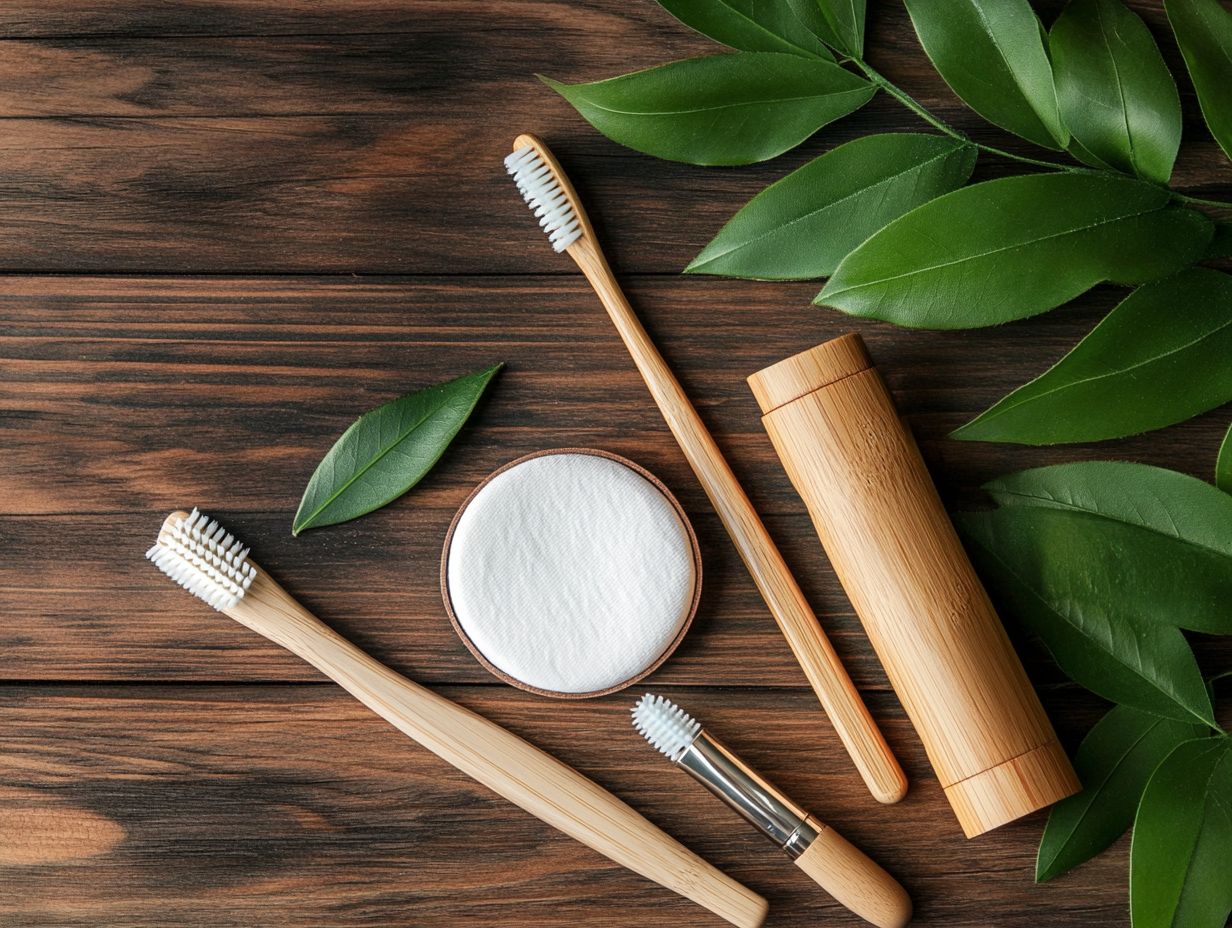
Bamboo is distinguished as a sustainable choice due to its exceptional growth rate and minimal environmental impact during cultivation, rendering it an ideal alternative to traditional materials employed in cosmetic packaging.
This fast-growing grass can attain maturity in just three to five years, which is significantly faster than hardwoods, which may require decades. Additionally, bamboo is entirely biodegradable, ensuring that products crafted from it do not contribute to landfill waste at the end of their life cycle.
The low carbon footprint associated with bamboo cultivation is another compelling advantage, as it absorbs more carbon dioxide than many tree species.
Moreover, the responsible sourcing of bamboo, often conducted on small, eco-friendly farms, bolsters its sustainability credentials while simultaneously supporting local economies and preserving biodiversity.
Benefits of Bamboo in Beauty Products
The integration of bamboo into beauty products presents several advantages, especially in cosmetic packaging. Its natural antimicrobial properties contribute to product preservation, while also offering durability and moisture resistance that are frequently absent in conventional materials.
Natural and Eco-Friendly Properties
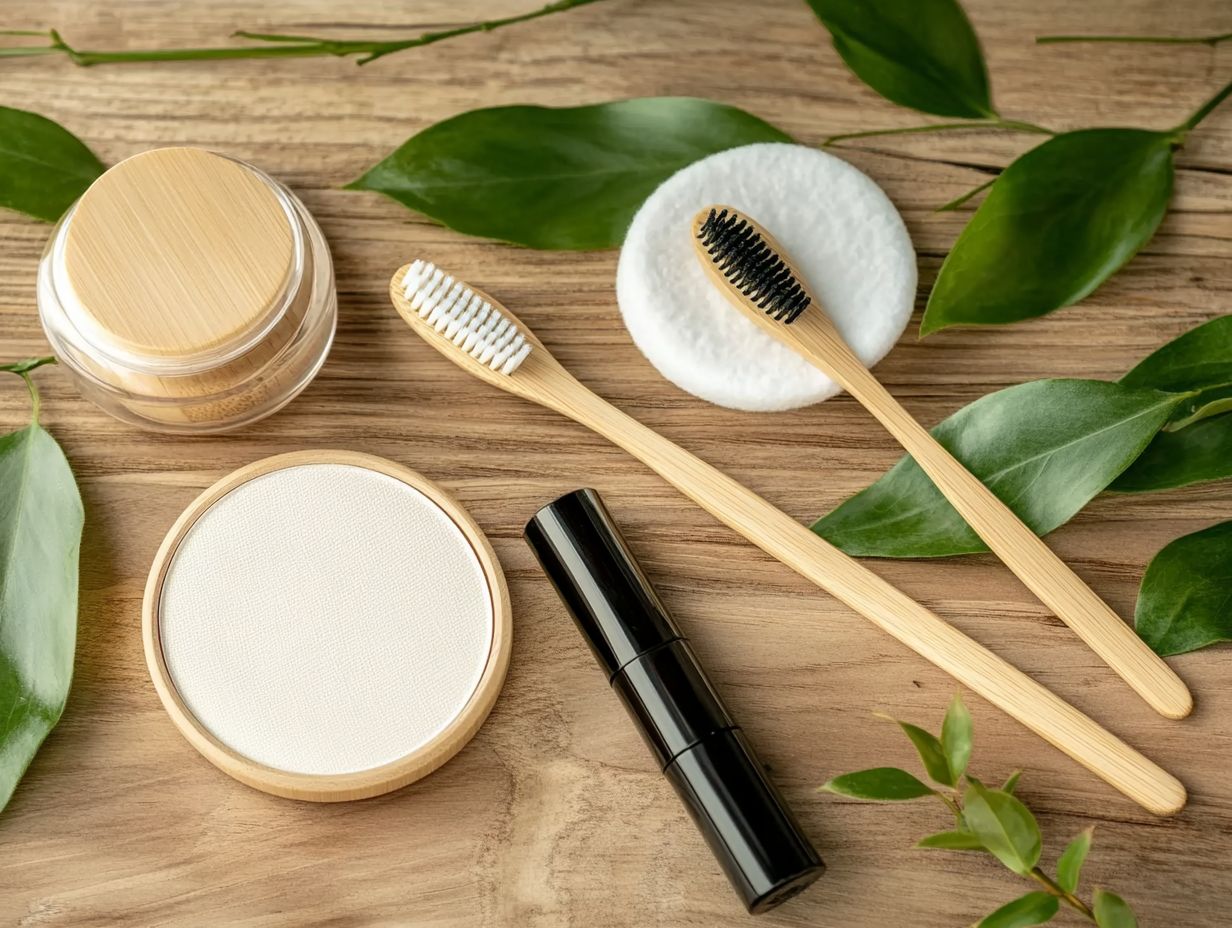
Bamboo’s inherent properties render it an exceptional choice for eco-friendly products, particularly in cosmetic preservation, where its biodegradable materials play a vital role in reducing environmental waste.
This resilience and versatility not only attract environmentally conscious consumers but also demonstrate a commitment to sustainable beauty practices. The antimicrobial properties of bamboo further enhance its utility, ensuring that cosmetic formulations remain free from harmful bacteria without the reliance on synthetic preservatives.
By incorporating bamboo into beauty routines, consumers can advocate for an eco-friendly lifestyle while utilizing products that preserve their integrity and effectiveness. This increasing preference for plant-based alternatives signifies a noteworthy shift towards sustainability, as individuals actively seek solutions that align with their values and contribute positively to the planet.
Types of Bamboo Beauty Products
The versatility of bamboo has resulted in the development of an extensive array of beauty products. This includes:
- bamboo jars for skincare
- bamboo lipsticks
- bamboo hair brushes
- innovative bamboo fiber masks
All designed to meet the diverse needs of consumers within the beauty industry.
Skincare, Haircare, and Makeup Options
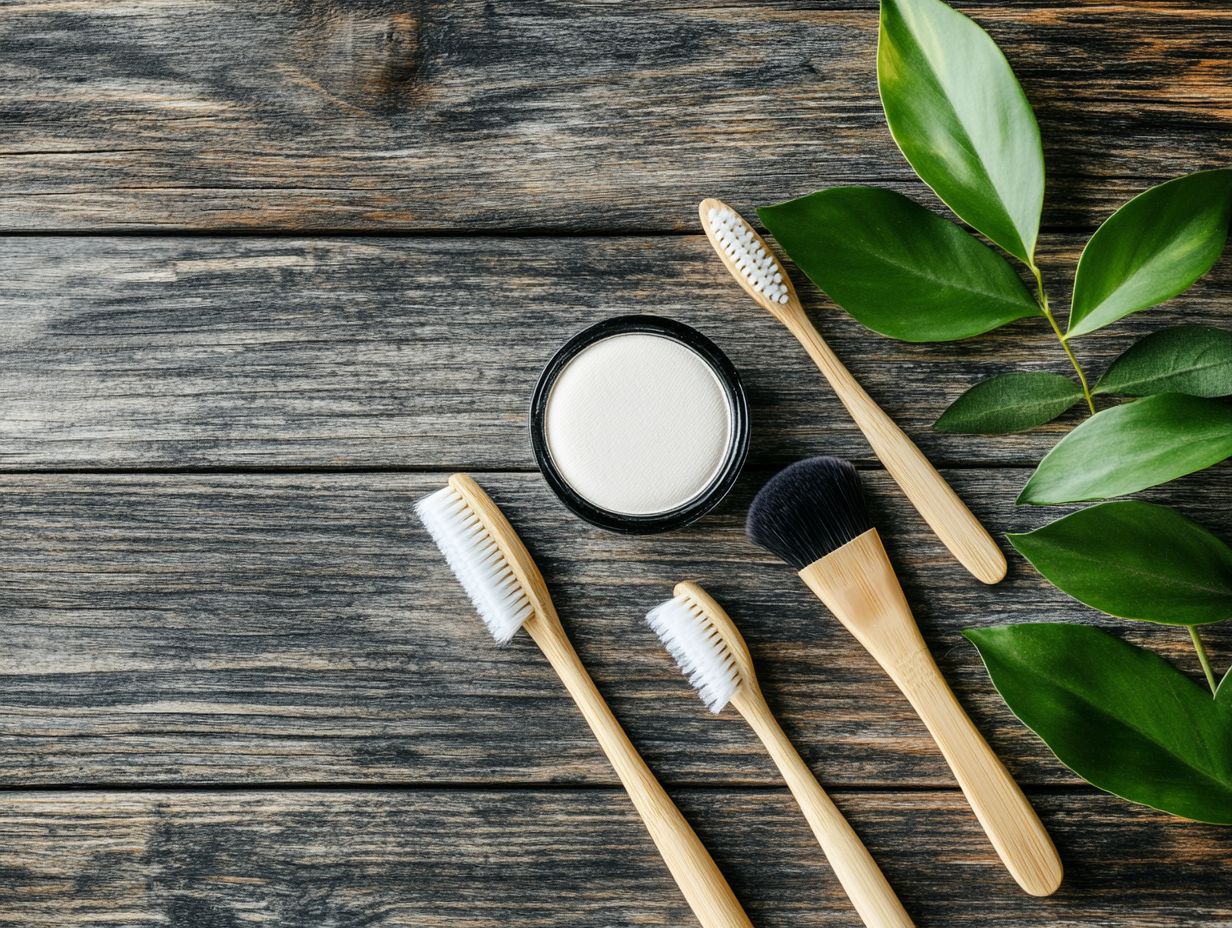
Bamboo extracts and bamboo water have emerged as increasingly popular ingredients in skincare products, enhancing formulations with their natural benefits while promoting eco-friendly beauty solutions through innovative cosmetic packaging.
These components offer distinct advantages, including their ability to hydrate, soothe, and provide antioxidant protection, which makes them particularly appealing to consumers who prioritize skin health. Numerous brands have adopted these natural ingredients in their serums, moisturizers, and haircare products, frequently receiving positive feedback for their lightweight textures and effective results.
The incorporation of bamboo not only emphasizes the efficacy of these products but also aligns with the growing focus on sustainable practices within the beauty industry. This alignment attracts environmentally-conscious consumers seeking responsible choices in their skincare routines.
How to Incorporate Bamboo into Your Beauty Routine
Incorporating bamboo into a beauty routine can be both straightforward and beneficial. Environmentally conscious consumers have the opportunity to choose from a diverse range of bamboo products that not only enhance their skincare and cosmetic applications but also promote sustainable practices.
Tips for Choosing and Using Bamboo Products
When selecting and utilizing bamboo products, it is imperative to consider factors such as quality, brand reputation, and the environmental impact of packaging alternatives to ensure a genuinely sustainable beauty experience.
By dedicating time to research and identify brands that emphasize ethical sourcing and sustainability, consumers can positively influence both their beauty routines and the environment. It is advisable to seek certifications that signify responsible harvesting practices, which serve to protect bamboo’s natural habitat. Additionally, evaluating the packaging of these products is essential; choosing brands that employ biodegradable or minimal packaging can significantly mitigate waste.
Moreover, understanding the unique benefits of bamboo—such as its natural antibacterial properties and rejuvenating qualities—give the power tos individuals to select products that not only enhance their beauty regimen but also contribute to environmental health.
Other Sustainable Beauty Alternatives
As the beauty industry continues to evolve, there is a growing demand among consumers for sustainable beauty alternatives. Individuals are increasingly embracing eco-friendly solutions that not only enhance their beauty routines but also reduce environmental impact through the use of innovative packaging materials.
Exploring Other Eco-Friendly Options
Exploring eco-friendly options within the beauty industry enables consumers to identify a diverse array of products that reflect their values of sustainability and environmental responsibility.
The market offers numerous innovative choices, ranging from biodegradable skincare containers to refillable makeup palettes. Many brands are increasingly emphasizing the use of natural ingredients and responsible sourcing practices, ensuring that their formulations not only enhance beauty but also contribute to environmental protection.
By selecting these sustainable alternatives, consumers play a vital role in waste reduction and the promotion of ethical practices. As awareness of purchasing power grows, the beauty industry is undergoing a significant transformation towards greener solutions, cultivating a culture of mindfulness and responsibility that benefits both the environment and society at large.


